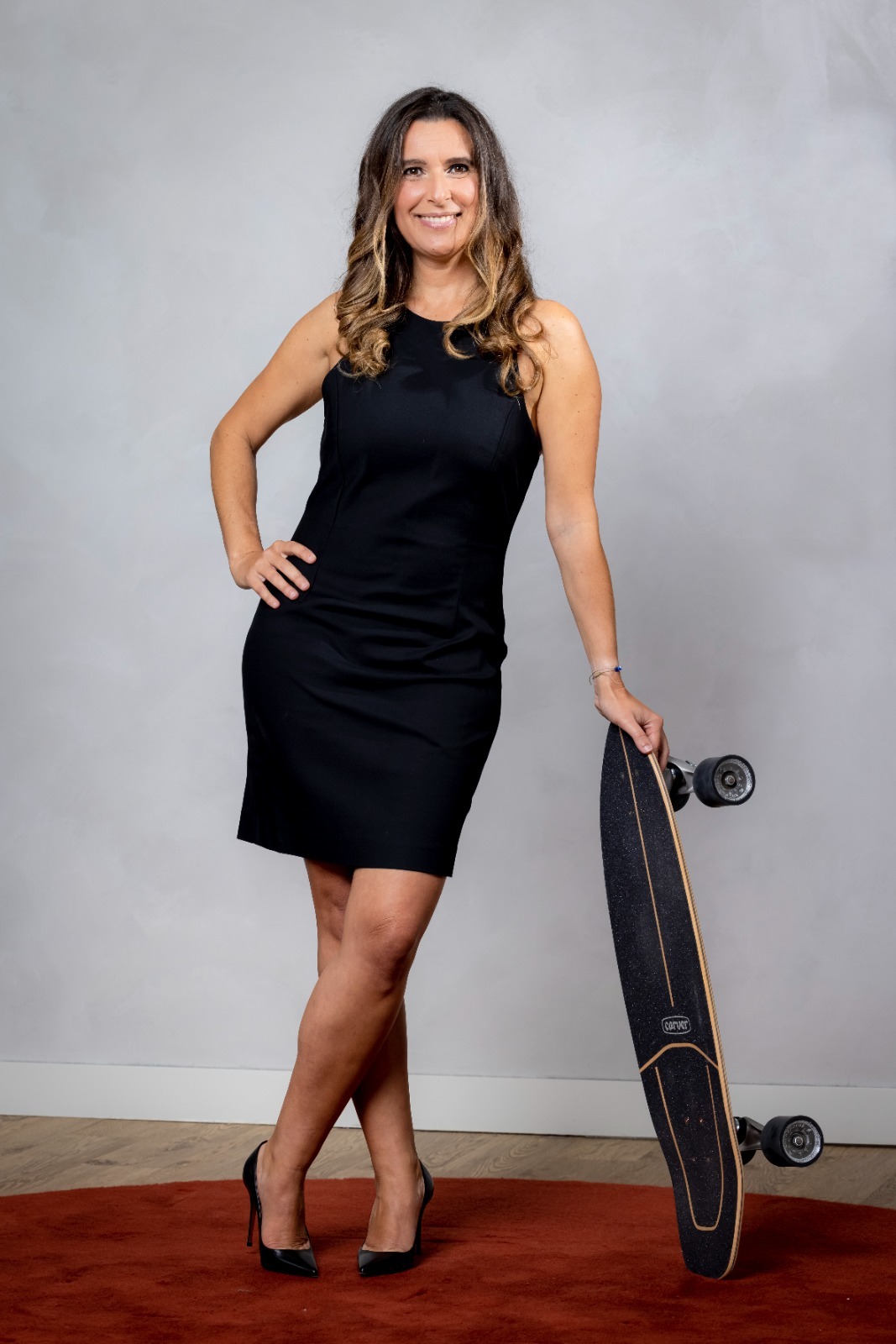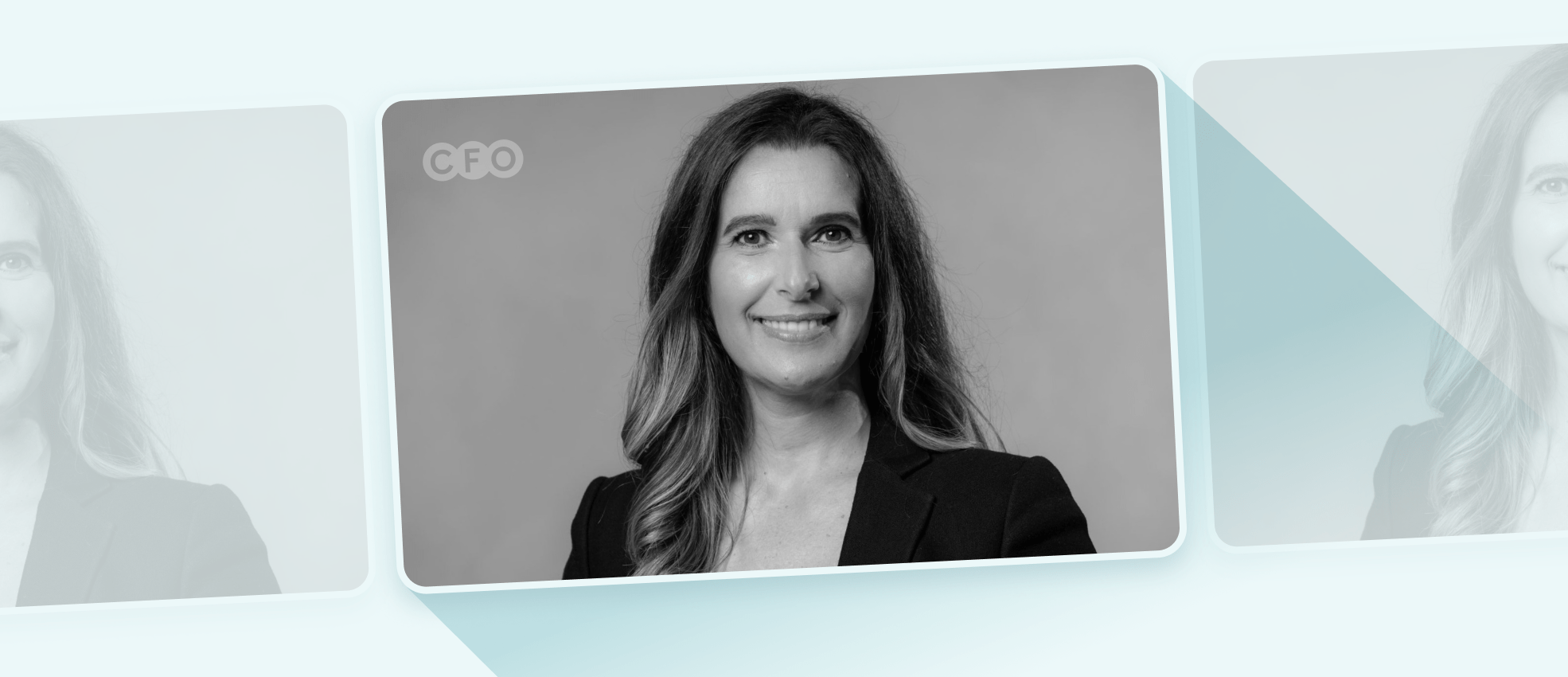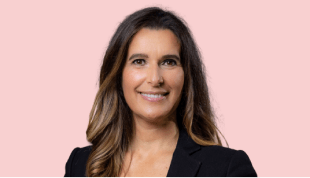Confucius once wrote, “We have two lives; the second begins when we realise, we only have one.” For a great part of my life, I couldn’t really grasp what this quote, written so many centuries ago, in a time when no one could even fathom the concept of a CFO, even meant. That changed the day I finally realised that what they say is true: you only live once.
I’ve always been a passionate person. I knew exactly what I wanted, and I knew the challenges and sacrifices I was willing to make to achieve my ultimate goal. I knew I wanted to be a CFO; it had been my dream job since I started working in the corporate world, probably even before that. I joined Microsoft when I was 26 years old, and for 12 years, I gave it my all while also having the time of my life. I had finally reached my final destination and was having a blast. For a time, it felt like I was on top of the world, and I could have probably kept on being the CFO at Microsoft Portugal for quite some time. But when you have experienced loss, the greatest of losses, you realise every moment counts.
Today, I know I’m no longer a CFO and don’t want to return to being a CFO. I’ve completely accepted and embraced the fact that this chapter of my life is over, and I’m extremely happy with the place I am at.
I was about 24 years old when I first saw what it was like to lose it all in the blink of an eye as I watched a football player fall, lifeless, during a match. He never got up again. That was the first step for me to realise that something in my life had to change. Two years after that, at 27, I lost my father. That traumatic experience made it clear that my life, my family, my hobbies and above all else, achieving financial independence to leave the corporate world was a must. So, I started planning.
I understood that I would have to retire at the age of 50 to be able to enjoy the time I had with the people I loved and do the things that brought me joy while I still had the health to be able to experience them fully. I came up with a plan to achieve financial independence, which meant a lot of savings, not a lot of spending, but also a lot of investments that would secure my financial well-being. I continued to forge my path and worked across the world to get there, developing new skills and competences, growing my career and always aiming for the next big move until I got to the place I wanted to be.

As a CFO, I had all the necessary resources at my disposal. I had the power to influence how things would happen, design strategies, and decide where we would move first. When you’re sitting at a table with the Board of Directors, and they ask you what to do, that’s an amazing feeling, right? But after five years, it was time to consider a change. But not the change some would expect.
When I considered my next career shift, I looked at my career development plan, it said enter a larger market like Asia-Pacific. I started considering my options until one day, I kept thinking to myself, “Am I doing this just to check a list? What competencies will I develop here that I haven’t got yet?”, and the more I thought about it, the more I knew it wouldn’t bring me any happiness, not anymore. If I had Microsoft’s CEO telling me I could choose any job in the world, and it would be mine, I wouldn’t be able to pick one. And for me, that was a problem. If I couldn’t even fathom the idea of choosing any job Microsoft had to offer in the world, maybe that meant my next step was out.
I discussed it with my family, and we collectively agreed that it was finally time to settle down after a life of travelling across the world for our careers. At this point, at 44 years old, I knew all my efforts had paid off, as I had already achieved my financial independence. I knew that if I left the corporate world, I still had the means to sustain myself and the people I love most, to maintain my lifestyle and, most importantly, I could finally take control of my time. And so, I did. Working in the corporate world wasn’t making me smile anymore, therefore I just had to realise that it was a hell of a run, but no longer what I wanted.
I was lucky to have the best support system. Everyone around me knew what I had been through, and it was no secret that I wanted to retire earlier. It didn’t stop them from asking if I was sure I was making the right decision and if this was what I wanted. Well, that and my daughter asking if we were going to be poor now that I wouldn’t have a job anymore. It’s funny to see how kids’ minds work and how they apply the values we instilled in them. Throughout her life, my child always knew it was important to have a job that would bring you happiness but also a good salary, to look at money not as something you should be afraid of, but to talk about it and manage it correctly. She knew that not having a job meant you would be in financial trouble. When she became concerned, I used Monopoly as a comparison, so, for her, Mommy is playing real-life Monopoly now.
If I had Microsoft’s CEO telling me I could choose any job in the world, and it would be mine, I wouldn’t be able to pick one. And for me, that was a problem.
From a professional standpoint, there were a lot of mixed feelings. When I joined as the CFO of Microsoft Portugal, I made it very clear that I would retire at 50, and on the one hand, some people would tell me that I would eventually change my mind, that I was too young to retire and I wouldn’t be able to leave the corporate world behind. While others would show their full support and say, “Well, that doesn’t sound like such a bad idea. Maybe I should do the same!”.
When I came forward and told my manager I planned on retiring earlier than expected, she stood by my side until the very last day. We worked on a succession plan together, ensuring all loose ends were tied and the transition would be a smooth sailing experience for everyone involved. Then, it was time to set a date: July 17th would be my last day at Microsoft Portugal, my last day as a CFO, and the start of my second life.
I chose that date as it was the day we planned to have our all-employee’s year end meeting. Having everyone together in the same meeting allowed me the opportunity to say goodbye to the team, thank them for their support and show how happy I had been to work alongside such a great group of inspiring individuals. I even bought some champagne bottles. And the best gift I got that day was a standing ovation from everyone in the room. More than any gift, flowers, or anything I could have gotten, seeing a room full of people standing up, clapping, and cheering for my new chance at life was surreal. It’s a moment I’ll cherish forever.
I went through the motions of finishing everything I still needed to do, and it felt just like any other day. I had meetings in the morning and prepared the pitch for the presentation. Right before closing my laptop, I sent an email to the team, which I had been drafting for six months. I wanted to thank everyone, and it was really overwhelming when you consider all the people you crossed paths with over 18 years. In the end, I didn’t mention any names, but everyone in general, as I truly believed each and everyone had made a difference in my journey, somehow. I also wanted to ensure I had the right tone to make people understand that my decision was for personal reasons, not because I didn’t love my job or the company. Microsoft is the best company to work for, I just didn’t want to work anymore.
There was this one time when someone asked me what my title was, and that’s probably the moment I first realised things had changed.
After that, it was time to go. I finally closed my laptop for the last time and dropped it off alongside my badge, car keys and even my phone. It was probably around that time that I started to consider how things were about to change. As I left the building for the last time, I was also taking the very first step into my second life, and I remember thinking, “I need to leave with my right foot ahead” and so I did. A sense of freedom washed over me as I walked through those glass doors. I didn’t dwell a lot on it because this wasn’t a time to be sad but about celebrating all the hard work and perseverance it took to get here. There’s always a sense of nostalgia, but whenever I felt it, I knew it was about saying goodbye to the past and embracing the future and this new adventure I was about to start.
But not everything in life is just sunshine and rainbows, and while I’ve known for most of my career that this day was about to come, there were times when fear and uncertainty crept in. You start wondering if the pros outweigh the cons if you’re up for it, and, most importantly, what you are going to do afterwards. And we have society and our culture to thank for that.
There’s no denying that being a CFO carries a lot of weight. There’s a lot of responsibility but also a great status, and when you know you’re about to lose it, it feels like you’re going through a break, like you are distancing from someone you loved, but you have grown apart. In the months I was planning my exit, it was hard to manage those emotions, anticipating what would happen and how those around me would perceive me after I stopped being a CFO. I wondered how I would have to act, if society would still find me relevant, if people would be happy to see me or if, up until then, they had just been friendly because of my position.
The question of purpose is also a hard pill to swallow. What happens when you’re back home with no job, routine, or idea of what to do next?
There was this one time when someone asked me what my title was, and that’s probably the moment I first realised things had changed. I was no longer Rita Piçarra, CFO at Microsoft Portugal, so what should I be? Ex-CFO, Former CFO? I was now a mother, surfer, traveller, public speaker, and writer. But was that enough for others? Was any of these a good enough title to be accepted in society?
The question of your purpose is also a hard pill to swallow. I knew my immediate plans: I would be on vacation with my family, but what then? What happens when you’re back home with no job, routine, or idea of what to do next? I knew I wanted to help people somehow, but no one needed me, right? No one needed me to approve budgets or do an ROI analysis, so would they need me for anything else?

The months leading up to this decision and my resignation were probably the hardest I experienced. It became especially harder when I talked about it with close friends who had also retired and ended up severely depressed due to their lack of purpose. I didn’t want that for myself. I didn’t want to retire and take the stress of the corporate world off my shoulders just to become anxious and depressed.
So, I started doing therapy, which helped me understand how to deal with these questions and shift my focus from the things I was losing to the ones I was gaining. I had to distance myself from the Rita I was before and focus on everything this new version of Rita was now free to do. I also understood that the day you leave, there will be someone there doing your job the next day, probably even better than you, and that’s fine.
It’s a hard acceptance because I’ve always been very ambitious. To say, “This is it, the end of your journey,” is a huge step, especially for those in the corporate world. So, it wasn’t something I could decide and adapt to in 3 seconds, like choosing an ice cream flavour you don’t like but must suck it up and deal with the consequences. This was a major life decision, so it took me a while to reach the right mindset and take that step to start this new chapter of my story. And now I know, without a doubt, it was the best decision I could have made.
I also understood that the day you leave, there will always be someone there doing your job the next day, probably even better than you, and that’s fine.
But I didn’t expect my life to take the turn it did. Right after I returned from vacation at the end of August, I was invited by Expresso, a Portuguese newspaper, to be a guest in one of their podcasts. At first, I wanted to say no, as the title was “O CEO é o limite”, which in English stands for something like “The CEO is the limit”, and I was not a CEO, I didn’t want to be known as one, I had just retired, I just wanted to be Rita, the mother, the traveller, the surfer, for a minute. It took a while, but the journalist finally convinced me to tell my story. Little did I know…
When I woke up, I discovered that the interview had gone viral. This event seemed to have shifted the world around me. Even though my friends and family remained the same, people started behaving differently. Now, I am the one who retired at the age of 44, even though I am still the same person. People just look at me differently, which is still a bit weird. Following that instead of falling into a depression, I almost drowned in the tsunami of messages and invitations I received, and at one point, it felt like I was working more than when I was at Microsoft.
But even though I don’t love the public exposure I’ve gotten from it, I’m willing to pay that price, as it has guided me on to my new purpose in life. Guiding and inspiring people to take control over their lives, careers and finances to ensure they’re working but also enjoying everything life has to offer. I still don’t know, to this day, if I’ll stay in the spotlight, but I know that the moment I leave, my voice won’t reach as many people as I wish to, so I need to strike that balance.
Today, I know I’m no longer a CFO and don’t want to return to being a CFO. I’ve completely accepted and embraced the fact that this chapter of my life is over, and there won’t be any more 9 to 5 jobs on my horizon, and I’m extremely happy with the place I am today. Because I know that if I ever went back, even for a short period of time and a great compensation, I wouldn’t be happy. For now, all I want is to go back to surfing, having fun, travelling, helping others, and being in full control of my agenda.



